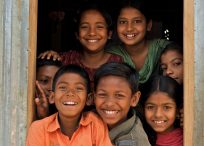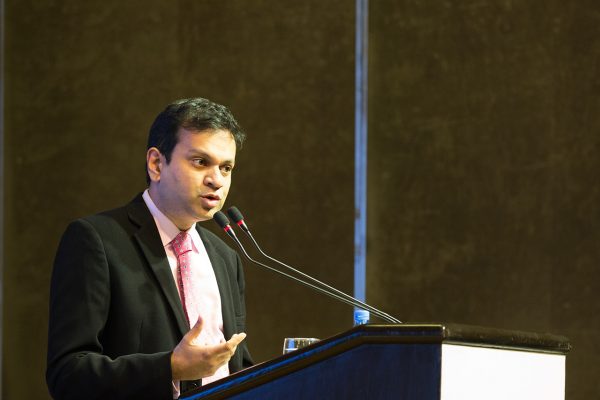Reading Time: 2 minutes
Although the amended Children Act 2013 has been in effect in Bangladesh for almost a year now, key actors in charge of juvenile justice (ie, police officers, sub-inspectors, lawyers and judges) still lack clear understanding of child rights laws. Moreover, juvenile development centres continue to operate at less than full capacity due to a lack of coordination. This means that children are still being sent to adult jails.
Although the amended Children Act 2013 has been in effect in Bangladesh for almost a year now, key actors in charge of juvenile justice (ie, police officers, sub-inspectors, lawyers and judges) still lack clear understanding of child rights laws. Moreover, juvenile development centres continue to operate at less than full capacity due to a lack of coordination. This means that children are still being sent to adult jails.
BRAC’s involvement in the juvenile justice system came about as a by-product of a project called Improvement of the Real Situation of Overcrowding in Prisons. This project focused on speeding up the release of those whose detention was unlawful or disproportionate. Linking prisoners to the justice system, family contact is established through paralegals in eight prisons. These paralegals are an important bridge between lawyers, prosecutors, courts, police officers and prisoners so that the appropriate action can be taken in the shortest time possible. Since January 2009, more than 3,767 prisoners have been released due to this intervention.
Whilst conducting this project, BRAC Human Rights and Legal Aid Services (HRLS) programme came across several children living in prisons among adults. Most of these children had not committed a crime, but were simply lost and had been picked up by police for their own safety. Thus BRAC expanded its focus to include these children who had been forgotten within the justice system.
In January 2014,BRAC signed a Memorandum of Understanding (MoU) with the Ministry of Social Welfare. The aim was to provide children with legal assistance, helping them attain their rights to secure bail, communicate appropriate information to their guardians, and return them home using BRAC’s countrywide network.
One such case was that of an eight-year-old boy from Jhalokati district. He was playing in what he thought was an abandoned bus, later falling asleep on one of the seats. Whilst he slept, the bus departed for Dhaka. When he awoke he was 200km away from his home. When the police picked him up, he could not tell them his home address or the contact details of his parents. Since he had no legal representation in court, he was sent to the Tongi juvenile development centre for ‘safe custody’. Upon visiting the centre, BRAC lawyers came to know the boy’s story and attempted to find his parents. BRAC succeeded in tracking them down due to its extensive network of human rights and legal aid clinics. Once BRAC lawyers were in contact with the parents, they set a court date for the boy and arranged for his parents to come to Dhaka so that they could be reunited with their child.
Currently, HRLS is tracking its observations each step of the way and plans to disseminate its findings with the appropriate stakeholders, including the Ministry of Social Welfare to help improve the system. In the eight months since the MoU was signed, BRAC HRLS has secured the release of 77 children and reunited them with their families. Additionally, since the beginning of 2012, BRAC has released 174 of the 240 children it has provided legal assistance to. Many of the others will also be released soon.
Jess Bailey was a summer intern with BRAC’s human rights and legal aid services (HRLS) programme.






